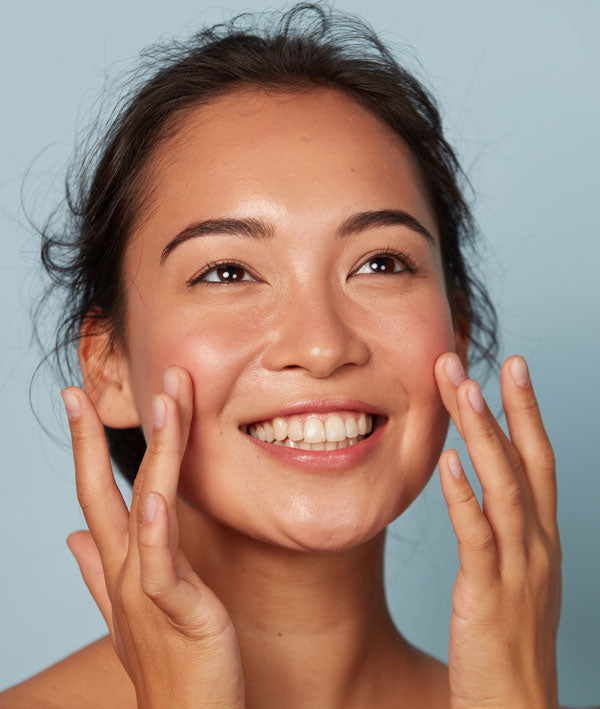Collagen is the most abundant protein in our bodies, providing structure, support, and elasticity to our skin. As we age, the natural production of collagen diminishes, leading to visible signs of aging such as wrinkles, fine lines, and sagging skin. Fortunately, there are several ways to preserve and even boost collagen levels, ensuring your skin stays youthful and vibrant for longer. Let's explore eight proven methods to preserve your skin’s collagen, including skincare ingredients like hyaluronic acid serum and vitamin C serum, which play a significant role in maintaining a healthy, glowing complexion.
1. Incorporate a Hyaluronic Acid Serum into Your Routine
Hyaluronic acid is a powerhouse ingredient when it comes to maintaining healthy skin. It’s known for its ability to retain moisture—holding up to 1,000 times its weight in water—which helps keep the skin hydrated and plump. When your skin is well-hydrated, it creates an optimal environment for collagen production and maintenance.
Using a hyaluronic acid serum daily not only boosts skin hydration but also improves skin elasticity and reduces the appearance of fine lines and wrinkles. By enhancing the skin’s moisture barrier, hyaluronic acid minimizes collagen breakdown and promotes a firmer, smoother complexion. For best results, apply the serum on damp skin to lock in moisture and follow up with a good moisturizer to seal in the hydration.
2. Use a Vitamin C Serum Daily
Vitamin C is a potent antioxidant that plays a crucial role in collagen synthesis. It neutralizes free radicals, which are unstable molecules that damage collagen fibers and accelerate the aging process. Regular use of a vitamin C serum helps protect your skin from oxidative stress and boosts collagen production.
When selecting a vitamin C serum, opt for one with a concentration of at least 10-20% L-ascorbic acid (the most stable form of vitamin C) to maximize its effectiveness. Apply it in the morning to protect your skin from UV damage and environmental pollutants. Over time, consistent use of vitamin C will lead to brighter, firmer, and more youthful-looking skin.
3. Protect Your Skin from UV Damage
Sun exposure is one of the leading causes of collagen breakdown. Ultraviolet (UV) rays penetrate deep into the skin, damaging collagen fibers and accelerating skin aging. To protect your skin from UV-induced collagen degradation, always wear broad-spectrum sunscreen with an SPF of 30 or higher, even on cloudy days.
In addition to wearing sunscreen, consider incorporating physical barriers like hats, sunglasses, and clothing with UV protection. Limiting sun exposure during peak hours (10 a.m. to 4 p.m.) can also significantly reduce the risk of sun damage. By safeguarding your skin from harmful UV rays, you preserve the collagen that keeps your skin firm and elastic.
4. Eat a Collagen-Rich Diet
What you eat has a profound impact on the health of your skin. Consuming a diet rich in collagen-boosting foods can promote the production and maintenance of this vital protein. Some collagen-rich foods include bone broth, fish, lean meats, and eggs. These foods contain the amino acids—glycine, proline, and hydroxyproline—that are necessary for collagen synthesis.
In addition to consuming collagen directly, eat foods that are high in vitamin C, zinc, and copper, as these nutrients are essential cofactors in collagen production. Citrus fruits, berries, leafy greens, nuts, and seeds are excellent choices to support your skin’s collagen from within.
5. Avoid Excessive Sugar Intake
Excess sugar in your diet can lead to a process called glycation, where sugar molecules bind to collagen and elastin fibers, causing them to become stiff and brittle. This results in loss of skin elasticity, increased wrinkles, and sagging. To preserve your skin’s collagen, limit your intake of refined sugars and processed foods.
Instead, focus on a balanced diet with plenty of whole foods, lean proteins, and complex carbohydrates. Replacing sugary treats with antioxidant-rich snacks like fruits and nuts can help protect your skin from glycation and keep it looking youthful and firm.
6. Incorporate Retinoids into Your Skincare Regimen
Retinoids, derivatives of vitamin A, are highly effective in promoting collagen production and improving skin texture. They work by increasing cell turnover and stimulating collagen synthesis, which helps reduce the appearance of fine lines, wrinkles, and uneven skin tone.
Retinoids can be found in over-the-counter products (retinol) and prescription-strength formulas (tretinoin). Start with a lower concentration to build tolerance and apply it at night, as retinoids can make your skin more sensitive to sunlight. With regular use, you’ll notice smoother, firmer, and more resilient skin.
7. Stay Hydrated and Maintain a Healthy Lifestyle
Staying hydrated is crucial for overall skin health. When your body is well-hydrated, it ensures that the skin remains supple and resilient, making it less prone to collagen breakdown. Aim to drink at least 8 glasses of water per day, and supplement with hydrating foods like watermelon, cucumbers, and oranges.
Beyond hydration, maintaining a healthy lifestyle with regular exercise and adequate sleep can positively impact collagen production. Exercise improves blood circulation, delivering essential nutrients to the skin, while sleep allows the body to repair and regenerate, supporting collagen maintenance.
8. Consider Collagen Supplements
Collagen supplements have gained popularity for their potential to enhance skin health. Available in various forms such as powders, capsules, and drinks, collagen supplements contain hydrolyzed collagen peptides that are easily absorbed by the body. Regular supplementation may help increase skin elasticity, reduce wrinkles, and support overall skin hydration.
When choosing a collagen supplement, look for one that contains Type I and Type III collagen, as these types are most abundant in the skin. Additionally, combining collagen supplements with other skin-friendly nutrients like hyaluronic acid, vitamin C, and antioxidants can further amplify their benefits.
Preserving your skin’s collagen is essential for maintaining a youthful appearance and protecting your skin from premature aging. By incorporating these eight strategies—using hyaluronic acid and vitamin C serums, protecting your skin from UV damage, eating a collagen-rich diet, avoiding excess sugar, using retinoids, staying hydrated, and considering collagen supplements—you can support your skin’s natural ability to produce and maintain collagen.
Remember, consistency is key when it comes to skincare. While some methods may yield immediate results, others require time and dedication. Make these habits part of your daily routine, and you’ll be rewarded with a firmer, more radiant complexion that defies the aging process.







